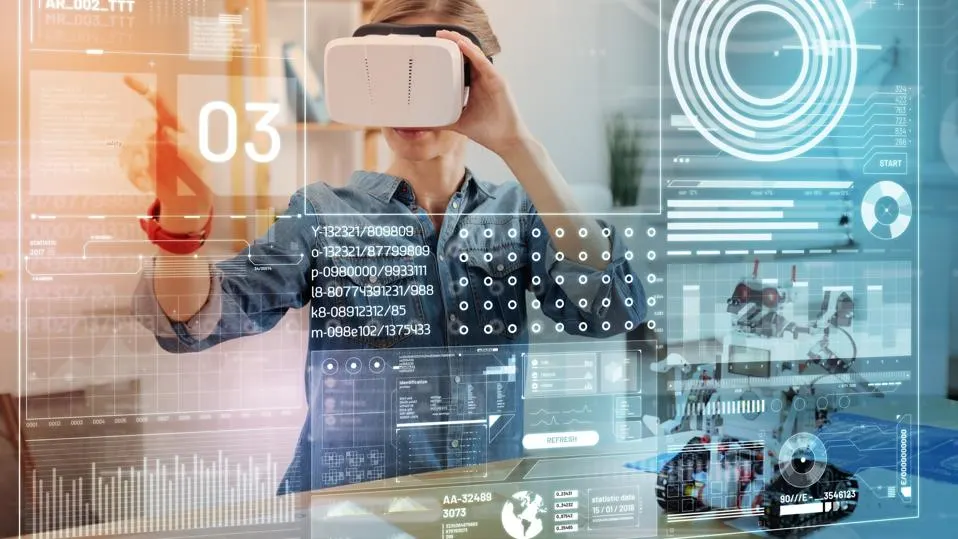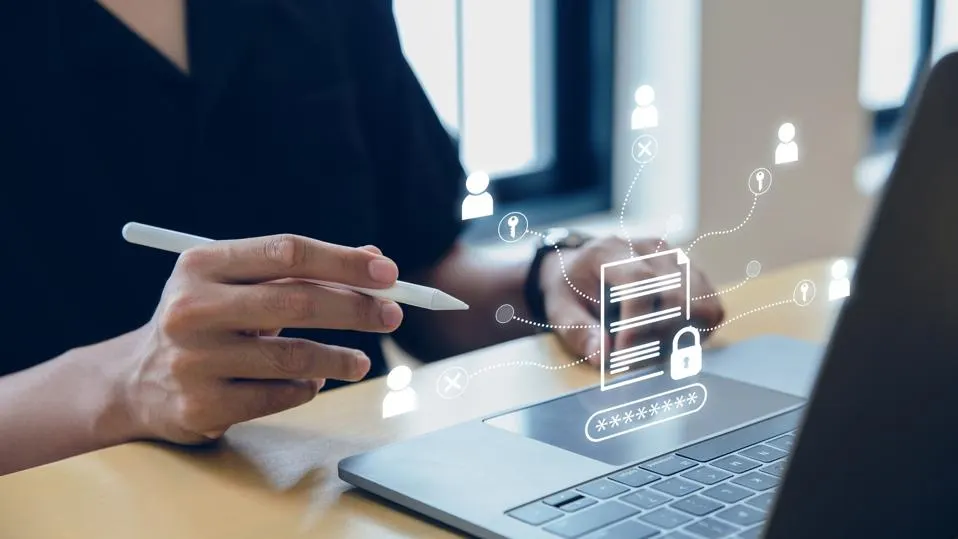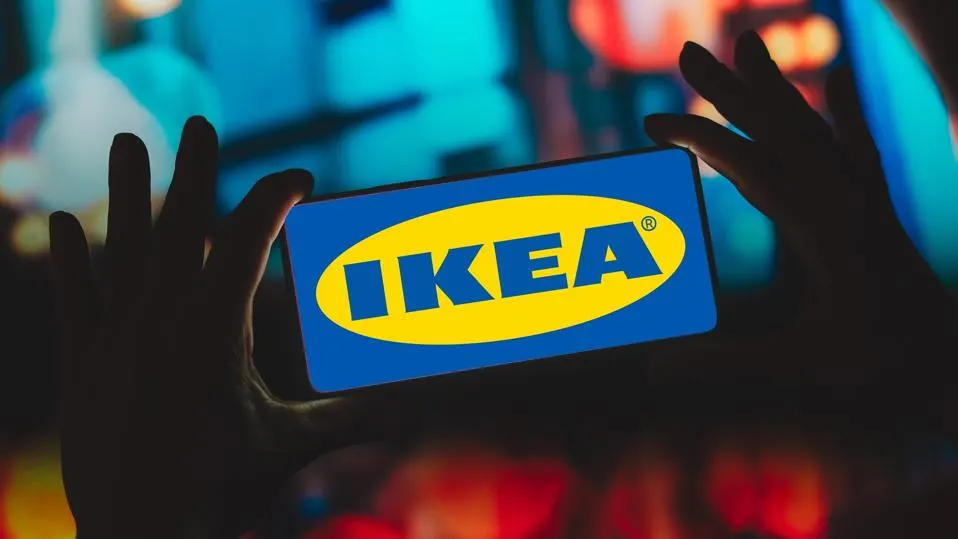The Biggest Workplace Tech Trends In The Next 10 Years
25 March 2024
What will the world look like ten years from now? Given the current pace of technological change, not to mention ongoing economic, environmental and geopolitical turmoil, the one thing we can say for certain is that it will look very different.
The workplace, in particular, is in an ongoing state of evolution. For many businesses, the Covid-19 pandemic was a catalyst for massive change that’s still ongoing. And artificial intelligence – particularly the new generative AI tools – are already changing many aspects of day-to-day work across various industries and professions.
Of course, ten years is a big jump forward, and it’s hard to say anything about what life will be like by then with 100 percent certainty. But by extrapolating what’s going on today and imagining how wider societal changes could continue to impact our lives, we can take an educated guess. These are some of the trends I think could be on the agenda as we move into the second half of the next decade.

Robots and AI In The Workplace
AI will be the most transformative technology of the next decade, and by 2035, it will be deeply ingrained and integrated into our working lives. Even more than mechanization or digitization before it, AI will transform the way we think about tools. This is huge because tools were what differentiated us from other animals millions of years ago, enabling us to evolve and become the planet's dominant species. By 2035, tools have become our cognitive, collaborative partners.
We’ll use AI to enhance our creativity, drive efficiency, and solve problems in innovative ways. As well as the digital tools we use now, it’s likely that autonomous, highly mobile robots will assist us in industries like construction (laying bricks, pouring concrete, wiring), agriculture (sowing and harvesting crops, monitoring health), logistics (warehouse work, inventory management), distribution (delivery), environmental clean-up and emergency response. In office-based work, intelligent machines will handle scheduling, record keeping, compliance, recruitment and the creation of personalized working schedules. AI tools will also help us monitor our well-being and mediate our work/life balance, recognizing when we are stressed or overworked and helping us avoid dangerous situations.
Sustainable And Resilient Workplaces
Unfortunately, it looks like the need to take action to prevent damage to our planet will only be more urgent in 2035. To those following the science, it seems inevitable that we will see the introduction of new laws and regulations that could be deeply impactful in many areas of our lives. This will include work and workplace culture, where eco-friendly initiatives will stop being “nice-to-haves” and become critical to business survival.
With rising energy costs and an increasing scarcity of water in many parts of the world, eco-friendly, sustainable practices will be ingrained in operations and culture. The growing awareness and importance placed on sustainability by the younger generation mean even more buying decisions will be based on a business’s ecological footprint.
AI will also be essential for creating more resilient businesses that are able to stand up to the challenges of difficult times. This will involve automating processes around adaptability and contingency planning. This will be crucial to building organizations that can survive and thrive in challenging environmental and political circumstances.
Hyper-Connected Digital Ecosystems
In 2035, the digital tools and platforms we rely on for productivity and working are hyper-connected, persistent virtual environments designed to boost productivity and collaboration. Virtual Reality (VR) environments are so immersive that barriers to remote teamwork are practically non-existent, and communicating with remote colleagues is as intuitive and friction-free as it would be if we’re all in the same room.
Almost every aspect of work – from the organizations we work in to the customer contact points and the products and services we deliver exist as digital twins, and learning and upskilling will take place via fully integrated platforms and personalized learning paths, enabling on-the-job training in safe, risk-free augmented reality (AR) environments. This hyper-connected digital landscape will drive productivity and efficiency by optimizing working processes and fostering a culture of innovation, experimentation and continuous learning.
The Human Renaissance
Ok, well, perhaps this one isn't so much a technology trend as an anti-technology trend. No, I don’t expect that there will be a big rejection of technology or a return to the pre-digital age.
What I do believe, though, in that a world where intelligent, autonomous machines are the norm, there will be a growing appreciation for skills that are inherently human. Those of us who demonstrate great creative problem-solving skills, emotional intelligence, critical thinking and ability to communicate human-to-human will become increasingly valuable and essential members of any workforce we choose to join.
This might require some shedding of egos, as the next generation of great leaders and thinkers will undoubtedly cede some of their decision-making and strategic planning to machines and algorithms. There will be little room for the “my way or the high way” mindset. But it won’t be a total handover. Those who are able to balance driving technological efficiency with a human touch and qualities that machines still find hard to emulate will be highly sought after indeed.
Related Articles
Sex And Intimacy In The Generative AI Era
Sex and technology have long been intertwined – millions of us use dating apps to find partners, and some of the earliest commercial online activity revolved around pornography.[...]
Generative AI Sucks: Meta’s Chief AI Scientist Calls For A Shift To Objective-Driven AI
In a landscape where generative AI is hailed as the frontier of technological innovation, Yann LeCun, Chief AI Scientist at Meta, presents a contrarian viewpoint that challenges the status quo.[...]
Instacart Harnesses Generative AI To Revolutionize Grocery Delivery Experience
Grocery delivery and pickup service Instacart is not shy about adopting new technologies. So, it makes sense that the company has embraced generative AI across the business.[...]
Responsible AI: Why Privacy Is An Essential Element
Today, people often talk about “responsible” AI use, but what do they really mean?[...]
The Amazing Ways IKEA Is Using Generative AI
Global furniture retailer IKEA has long been at the forefront of tech-driven retail innovation.[...]
Generative AI Is Coming To Your Home Appliances
Across all industries, organizations are rapidly embracing generative AI. Among them, makers of home appliances like fridges and ovens.[...]
Sign up to Stay in Touch!
Bernard Marr is a world-renowned futurist, influencer and thought leader in the fields of business and technology, with a passion for using technology for the good of humanity.
He is a best-selling author of over 20 books, writes a regular column for Forbes and advises and coaches many of the world’s best-known organisations.
He has a combined following of 4 million people across his social media channels and newsletters and was ranked by LinkedIn as one of the top 5 business influencers in the world.
Bernard’s latest book is ‘Generative AI in Practice’.










Social Media